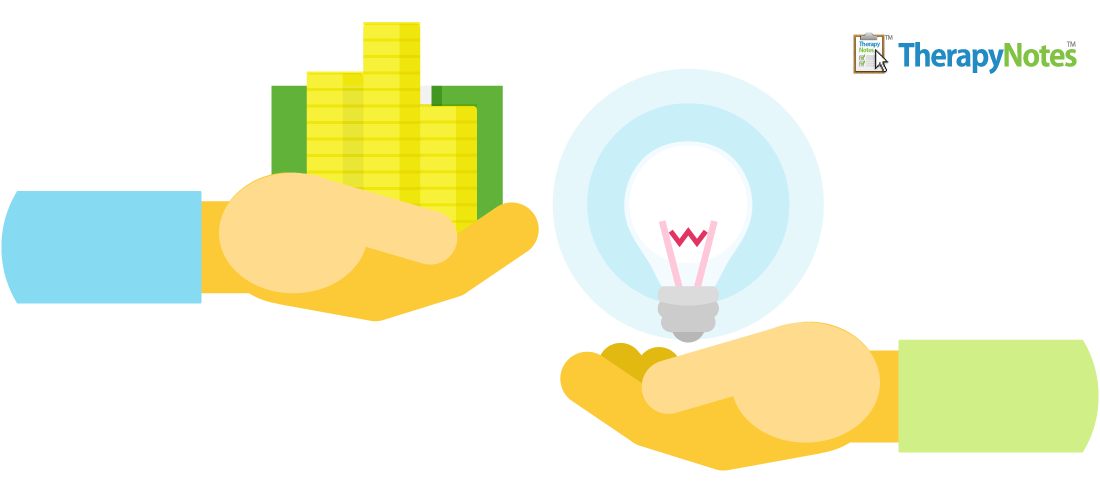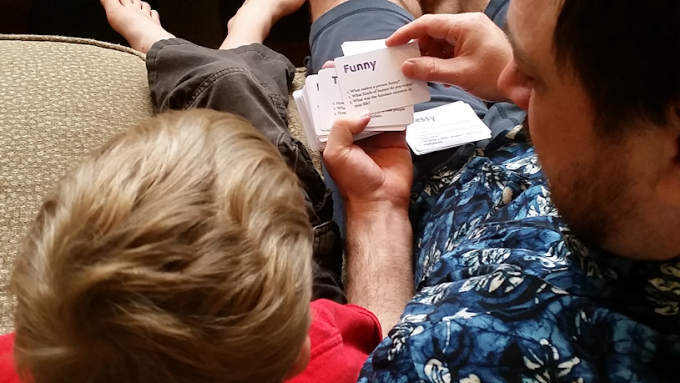How to Make Money Outside of Therapy
By Rob Reinhardt, LPCS on June 13, 2018


To me, ideas are worth nothing unless executed. They are just a multiplier. Execution is worth millions.
– Steve Jobs
There is a natural developmental cycle many therapists in private practice go through. Being a Licensed Professional Counselor Supervisor and having provided consultation services to therapists across the country for the last eight years, I can say with confidence that this pattern is normal.
Let’s look at common stages therapists experience and how to use them to make money.
Developmental stages of a therapist
Here are the three stages many therapists experience in their careers:
- Getting started – You dive into private practice and learn a lot from others. You discover there’s much about business and technology you didn’t know, and tools and software that help you work more efficiently.
- Hitting your stride – You spend a lot more of your time providing therapy. You’ve established and become comfortable with the business side of things. Perhaps you even establish a strong specialty or niche. You’re doing great!
- Ready for something new – You’ve been doing this a while and you start to wonder (or even experience) how working and getting paid by the hour for providing therapy can wear on you. You start to wonder if there’s a way you can bring in more revenue without working so hard.
This third stage is where we get to truly make use of everything we’ve learned in the first two stages. For many, this naturally leads to growing into a group practice, providing “passive” income. For others, it may mean finding another way to make money.
Other ways to make money
In addition to starting a group practice, you might also consider these other ways to make money:
- Write a book
- Provide webinars, training or continuing education
- Add additional services to your practice (like supervision or concierge)
- Start a consultancy
- Launch a podcast
- Create a product
Coming up with an idea
With so many options, how can you decide which to pursue? A great place to start is to look at what you are currently doing and what you most enjoy about your work. Have you discovered that you have knowledge that others can benefit from? Have you created something useful in your practice?
Describe was one of my answers to that last question. Early in my counseling career, I realized that adjectives were at the root of the most productive counseling sessions. A client might tell me that they are a married computer programmer who paints landscapes as a hobby. That’s good information, but it doesn’t tell me what they think or feel about any of those things. Adjectives do that. But those adjectives don’t always come easy, even for adults.

So, I created the therapy tool, Describe, because what I found is that handing people a stack of adjectives on cards took the pressure off them to come up with the words so we can focus on processing those words, feelings, and experiences. For example, when I ask them to choose the words to describe how they’ve been since our last session, they may choose “quiet” and “sensitive,” which leads to me asking them to tell me more about their experience of feeling quiet and sensitive. We get right into quality therapy material.
Making an idea reality
How do you take something from idea to reality? Here’s a general process you can follow to develop your idea into a product:
- Identify your idea – This could be a tool you’ve developed, an expertise, a treatment modality or something else. I encourage you to choose something you feel passionate about because that will make you more likely to follow through. It’s important to note that it doesn’t have to be an entirely new idea. For example, there are other decks of cards out there used for therapy. But Describe is unique in that it comes with over 300 prompts plus an ever-growing list of activities, games, and interventions for all ages.
- Explore and flesh out your idea – How will you present your idea to others? Will it work best digitally? As a product? In a webinar or podcast? It may be easier to answer this during step 3.
- Do market research – Run your idea by colleagues and your target audience. Ask them what they think of the idea. Would they use it? Do they have ideas on how it might be improved? What would they pay for it? This also allows you to build an initial audience for your product.
- Put a price on it – Figure out what it will cost to execute your idea. Whether it’s manufacturing a tangible product or recording a podcast, there will be costs involved. Your cost will need to be less than what people are willing to pay if you intend for this to be an additional revenue stream.
- Make it happen – Each of these steps is worthy of their own article, but none more than this one. Without diligent attention paid to quality, planning, marketing, and execution, even the best idea is doomed. Following through is everything.
It took me seven years to work through these steps, developing multiple activities, interventions, and games for Describe cards. Realizing these could be useful for therapists everywhere, I had colleagues use them and provide feedback, I researched what it would take to mass produce them, and successfully funded their creation through Kickstarter in 2015. Three years later, Describe is so popular that I’m crowdfunding again, in order to create a second deck of cards and more activities. For a limited time, you can follow along with, and join in on, the Kickstarter campaign for Describe – Expanded (campaign ends June 25, 2018).
Whichever way you decide to make money outside of therapy, I can tell you from experience it’s worth it. Good luck!
* The content of this post is intended to serve as general advice and information. It is not to be taken as legal advice and may not account for all rules and regulations in every jurisdiction. For legal advice, please contact an attorney.
About Rob Reinhardt, LPCS
Get more content like this, delivered right to your inbox. Subscribe to our newsletter.
More Content You'll Enjoy
The Best Practice Fusion Alternative for Mental Health

Supercharge your Documentation with TherapyFuel!
